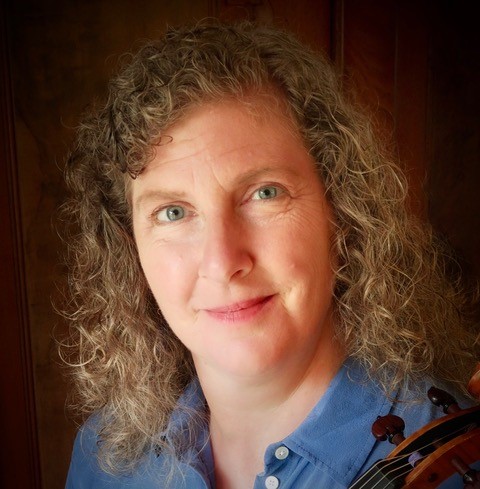- About Archives
- About SAA
- Careers
- Education
- Publications
- Advocacy
- Membership
 Jodi Allison-Bunnell, head of archives and special collections at the Montana State University Library, will be inducted as a Fellow of the Society of American Archivists (SAA) during an awards ceremony at the Joint Annual Meeting of the Council of State Archivists and SAA in Washington, DC. The distinction of Fellow is the highest honor bestowed on individuals by SAA and is awarded for outstanding contributions to the archives profession.
Jodi Allison-Bunnell, head of archives and special collections at the Montana State University Library, will be inducted as a Fellow of the Society of American Archivists (SAA) during an awards ceremony at the Joint Annual Meeting of the Council of State Archivists and SAA in Washington, DC. The distinction of Fellow is the highest honor bestowed on individuals by SAA and is awarded for outstanding contributions to the archives profession.
Throughout her nearly thirty-year career, Allison-Bunnell has been a champion for the discovery and use of archival collections. Her work is undergirded by inclusive and collaborative partnerships, a solid foundation in descriptive standards, and a focus on pragmatic solutions that have assisted archives of all types. After receiving a master of library science and a master of arts in American history from the University of Maryland at College Park (where her advisor was SAA past president and Fellow Frank Burke), Allison-Bunnell worked as an archivist, research assistant, and grant project administrator at the University of Maryland at College Park and the University of Montana. In 2007, she became a program manager at the Orbis Cascade Alliance, where she sustained and led a regional finding aid and digital collections aggregation program for archives and other cultural heritage institutions in Washington, Oregon, Montana, Utah, and Idaho. The program, initially named Northwest Digital Archives and eventually becoming Archives West, is now one of the largest US-based finding aid networks, representing more than 50 contributors and 35,000 finding aids. It is completely supported with member and participant funding and receives no federal, state, or continuing grant support for normal operations, and serves as an impressive model for other regional, consortia-based archival description work.
In 2002, Allison-Bunnell launched AB Consulting, where she assisted clients in designing and implementing archival systems, conducting needs assessments, and facilitating stakeholder collaborations. Her clients included the California Digital Library, LYRASIS, and the Montana State Historical Records Advisory Board. She now works at Montana State University Library, where she manages an academic special collections repository and its staff.
Strengthening the design and deployment of encoded archival standards has been a throughline in Allison-Bunnell’s leadership roles. She has held leadership positions on the SAA Standards Committee and its Technical Subcommittees on Encoded Archival Description (EAD) and Encoded Archival Context for Corporate Bodies, Persons, and Families (EAC-CPF). Her work seeks to connect broad-based national and international standards initiatives to local practice, centering implementation on the needs of archivists and end users. She played a substantial role in organizing the revision of EAD Version 2002, an initiative that began as a grassroots effort and formalized under her leadership. This work catalyzed profession-wide conversations about the EAD3 standard and provided important feedback for honing the new version.
Her scholarship continues the theme of broad-based and user-centered archival discovery. She presents frequently at SAA and Northwest Archivists conferences, among other venues, and has published multiple case studies on Archives West and the impact of finding aid aggregations more broadly. Her recent article in American Archivist proposes a robust future of aggregations of finding aids, digital content, and metadata. One nominator noted: “She is adept at translating complex ideas into understandable concepts to ensure that people buy into work based on mutual understanding of a project's goals. She builds connections, understanding that archivists and the communities that use them are not involved in discrete transactions but in relationship building.” Another supporter stated: "She can communicate with a clarity and enthusiasm that generates support from those outside the profession. She is a sort of Neil deGrasse Tyson of archives: powerful knowledge plus an unsurpassed ability to communicate."